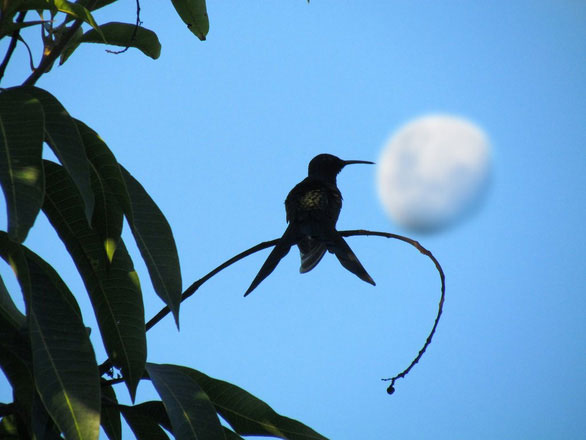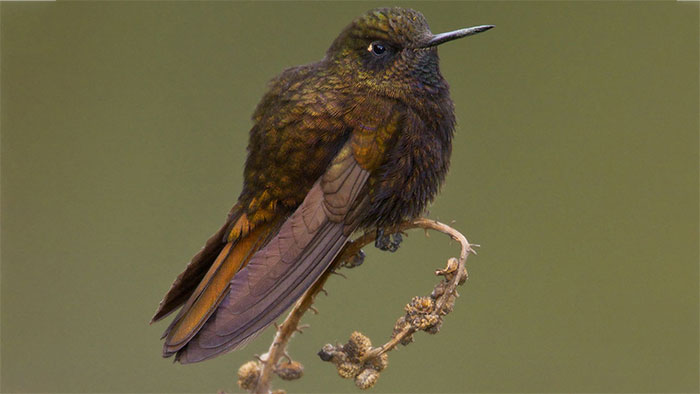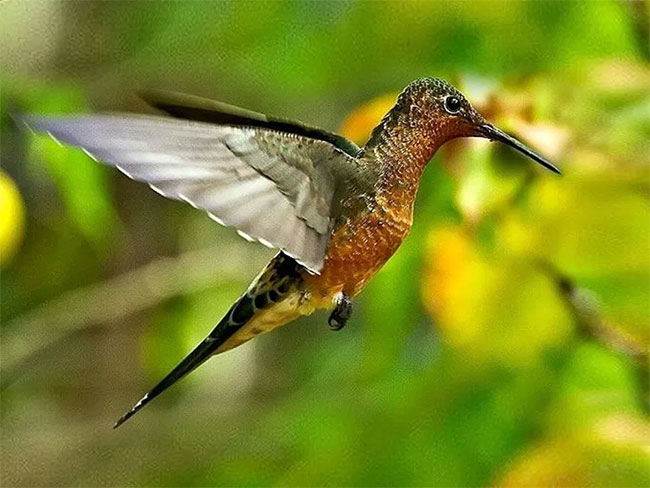Living in the Andes thousands of feet high, hummingbirds defy the extreme cold here with a special hypothermic mechanism. Recently, scientists have discovered this secret.
According to the scientific journal Science, among vertebrates, hummingbirds have the highest metabolic rate by body mass, 77 times higher than in humans.

This causes the hummingbird to eat almost continuously to maintain its energy. When it is too dark or too cold to find food, hummingbirds face the risk of depleting their rapidly draining energy bodies.
However, nature has given hummingbirds a special mechanism to adapt to cold night habitats, especially in high mountain areas like the Andes (South America).
Recently, a team from the University of New Mexico (USA) discovered the incredible ability to lower the body temperature of this little bird. As a result, they can reduce body temperature by 10-30 ° C and last for many hours.
By this time, the bird’s body was almost still. “You may even think the birds are dead until you touch them,” said Blair Wolf, a biologist at the University of New Mexico.
As the morning or the outdoors warms up, the hummingbird’s body temperature should gradually return to normal. Blair Wolf believes the mechanism is similar to hibernation in some mammals.
By reducing body temperature, hummingbirds minimize metabolism, reduce the risk of starvation due to loss of energy.
Normally, a hummingbird heart beats between 1,000 and 1,200 beats per minute. In “hibernation”, their hearts beat only 50 beats per minute.

À partir de mars 2015, l’équipe de Blair Wolf s’est rendue dans les hautes montagnes de plus de 3800 mètres dans les Andes pour découvrir les colibris. Ici, il fait extrêmement froid la nuit, parfois proche de 0 ° C.
Le groupe a capturé 26 colibris de six espèces différentes, dont Patagona gigas – le plus grand de la famille des colibris. Le groupe sépare les oiseaux des lieux de couchage et utilise un fil métallique inséré dans le trou de l’oiseau pour mesurer leur température.
The team found that not only by lowering the temperature, some species of hummingbirds also exhibit an amazing ability to drop to tens of degrees.
For example, the hummingbird Metallura phoebe can cool below 3.3 ° C. This is the lowest body temperature ever recorded in birds and other non-hibernating animals.
When it is cold at night, hummingbirds lower their body temperature on average to 5-10 ° C, which is about 26 ° C lower than when they are normally active.
 “It’s a wonderful possibility,” said Anusha Shankar – an ecologist at the Cornell Ornology Laboratory (USA), who was not involved in the study.
“It’s a wonderful possibility,” said Anusha Shankar – an ecologist at the Cornell Ornology Laboratory (USA), who was not involved in the study.
One of the reasons Shankar “admired” was that the majority of species in the bird class were thermo-animals, where body temperature usually doesn’t change too much. Or in humans, when hypothermia is only 2 ° C, the body has started to be in danger.


